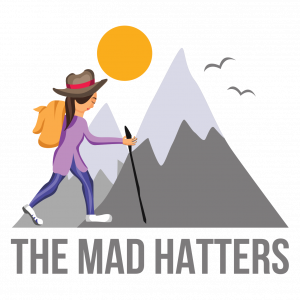Language as a communication tool during travelling can be a blessing if you’re familiar with it, and yet, it can turn into a massive hindrance as well in no time if you’re clueless about how to communicate with the locals at your destination.
While we all are travel enthusiasts and would love to get to see all the countries in the world and experience their individual unique features, cultures, histories, and people, we cannot possibly learn all their languages to help us move about. For standard travelling, there are some basic terms and phrases that you should know in the local language, in order to make your mobility in the new country easier. Most foreign travellers rely on Google Translate to help them navigate through. However, in a country like Pakistan, where internet and 3G/4G services can get sketchy in a lot of tourist areas and electricity breakdowns are frequent, translation apps can be rendered useless at times.
In Pakistan, the national spoken language is Urdu. While multiple regional languages in various dialects are spoken across the country – including Sindhi, Punjabi, Balochi, Pashtu, Hindko, Seraiki, Brushaski, and so on – Urdu is recognized as the country’s national language and is spoken and understood in most areas, and having some semblance of its basic knowledge would help you along the road.
Read on to know some of the most essential travel expressions in Urdu language for your next trip to Pakistan. If you would like to book a trip through some of the most beautiful destinations in Pakistan, contact us here now.
Here are 5 categories of phrases and words you should know in Urdu to make your travel experience easier and more enjoyable:
1. Greetings
- Hello: ‘Assalaam-u-alaiykum’
- Goodbye: ‘Khuda Hafiz’
- Good morning: ‘Subha Bakhair’
- Good night: ‘Shab Bakhair’
- Thank you: ‘Shukriyaa’
- Sorry/I’m sorry: ‘Maazrat/Mein maazrat chahta hoon (male)/Mein maazrat chahtee hoon (female)’
- Excuse me: ‘Suniyay’ (literally translates to ‘please listen’)
- My name is <name>: ‘Mera naam <name> hay’
- What is your name? : ‘Apka naam kiya hay?’
- Yes: ‘Jee’ (formal) ‘Haan’ (informal)
- No: ‘Nahee’
2. Directions
- Go straight: ‘Seedha chaleeyay’
- Go left: ‘Baayein murhiyay’
- Go right: ‘Daayein murhiyay’
- Go back: ‘Waapis chalein’
- Which direction is <location name>? : ‘<Location> kis taraf hai?’
- How far is <location>? : ‘<Location> kitna door hay?’
- Which way should I go? : ‘Main kis taraf jaun?’
3. Purchasing
- How much is this for? : ‘Yay kitnay ka hay?’
- How much will you charge? : ‘Kitne paise lo gay?’
- Pakistan Rupees: ‘Rupay’
- Counting:
- One: ‘Aik’
- Two: ‘Doh’
- Three: ‘Teen’
- Four: ‘Chaar’
- Five: ‘Paanch’
- Six: ‘Ch-hay’
- Seven: ‘Saat’
- Eight: ‘Aath’
- Nine: ‘Nau’
- Ten: ‘Dus’
- Twenty: ‘Bees’
- Thirty: ‘Tees’
- Forty: ‘Chaalees’
- Fifty: ‘Pachaas’
- Sixty: ‘Saa-thh’
- Seventy: ‘Sattarr’
- Eighty: ‘Assee’
- Ninety: ‘Nawway’
- Hundred: ‘Sau’
4. Places and other Nouns
- House: ‘Ghar’
- Airport: ‘Hawaai adda’
- Airplane: ‘Hawaai jahaaz’
- Train station: ‘Railway station’
- Hospital: ‘Haspataal’
- Embassy: ‘Sifaarat khaana’
- Restaurant, hotel, bus, train, railway, bathroom, bank, ATM – are all words that will be understandable in the Urdu language as well.
- Water: ‘Paani’
- Breakfast: ‘Naashta’
- Food: ‘Khaana’
5. Questions/Emergency
- I need a doctor: ‘Mujhay doctor ki zaroorat hay’
- I have lost my passport: ‘Mera passport gum gayaa hay’
- Please call the police: ‘Police ko bulaayein’
- I need to go to <country name> embassy: ‘Mujhay <country name> ke sifaarat khaanay jaana hay’
- I am allergic to <name>: ‘Mujhe <name> se allergy hay’
- I’m lost: ‘Mujhe raasta nahee milraha’
- I need help: ‘Mujhay madad kee zaroorat hay’
- I don’t know Urdu: ‘Mujhay Urdu naheen atee’
The words above may seem difficult to say out loud, but just a few minutes of practice can make you perfect. Remember – pronunciation and accent does not matter.
When you are travelling in Pakistan, you will come across many people who might not speak English or any other widely known languages. There will be some interactions, for example with some taxi drivers, restaurant waiters, shopkeepers, hotel managers, etc. where these phrases will come in handy.
Now that you’re fluent in most of the necessary Urdu words needed to make sure you won’t get lost in Pakistan, head on to our website to check out the upcoming adventure tours being planned by The Mad Hatters!
Written by: Tooba Latif
